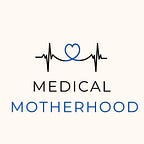“In special education, there's too much emphasis placed on the deficit and not enough on the strength.” — Temple Grandin [1]

Back to school is usually an exciting time of year.
This year, it’s hard to ignore the headlines:
There seems to be an increasingly vocal assessment that public school is struggling to fulfill its basic promises.
Michael B. Horn, author of the book From Reopen to Reinvent: (Re)Creating School for Every Child, says that the pandemic experience has caused a lot of families to question their assumptions about school.
“There’s obviously a whole conversation about what parents are trying to prioritize and how they’ve been so acclimated to seeing school as a status game or judgment on their parenting,” Horn told The Hechinger Report, likening modern schooling to a zero-sum game. Instead, he recommends a positive-sum system — one where everyone wins. “[A positive-sum system] tries to say, we can be part of this societal shift toward a healthier culture that isn’t judging parents or their kids, but is instead supporting both.”
Many parents of disabled children have already had this experience with public school. Due to their child’s differences, they long ago realized the folly of the school-status rat race. Their children’s accomplishments matter because they do — not because they are measured against a statistical norm.
These days, more and more American children are qualifying for special education services, which means more and more parents are probably learning this same lesson.
In 2019, the most recent year data were available, 6.47 million American students ages 6 to 21 qualified for special education. That is 9.7 percent of the total population of children, an increase from the previous year of 0.2 percentage points. The younger the student, the more likely they are to qualify for the individualized help. A little more than one in eight children in elementary school, or 12.7 percent, are now being served by our nation’s special education law — the Individuals with Disabilities Education Act (IDEA).
It remains my fervent hope that the pandemic will serve as chance to reinvent public school. I wrote last spring about when I finally gave up on the traditional brick-and-mortar system in favor of an online public charter, and it’s been a great option for my kids.
I’m not saying this type of schooling would work perfectly for everyone, but thinking outside of the box can be very helpful to some learners. This seems to also be the sort of flexible thinking that experts like Horn are advising:
“You have to get out of this one-size-fits-all mindset that all kids do better in brick-and-mortar learning,” he said, “that all kids do better with the exact same classroom experience or all kids need the exact same lesson on the exact same day — to a system that really recognizes students and parents have different circumstances, different situations and they need different models of schooling. School districts really need to meet parents where they are with more of a portfolio mindset as opposed to a one-size-fits-all mindset.”
There’s a reason the governing document for special education services is called an Individualized Education Program — your child’s uniqueness is supposed to guide the process.
The IEP can be long, complicated and overly obsessed with a child’s deficits, however. So some families have found a short one-pager about their student can help introduce new school staff to their personality, preferences and needs in a human-centered way. Regardless of whether you are preparing little backpacks for a trip on a school bus or charging up those Chromebooks for another year of online learning, a one-pager can be a helpful start to the school year.
Don’t have time? Don’t worry! I made you one. Just click this link, yep this one right here, to make a copy of a Google doc that you can customize in about 15 minutes. (If you have an iPhone, you may need to download the Google docs app to edit it or click on it from a desktop computer.)
Option 2: If you’re old school or just don’t have the right tech, you can click this blank PDF to simply print and fill it out with a pen.
This one-pager about your child can be a useful way to begin the school year. Send it digitally, or print it out and bring it to IEP meetings or that first day of school. With the course set for person-centered communication, navigation should be smoother the whole year long.
Click here to create an editable copy of this one-pager template in Google docs. On an iPhone? You may need to download the Google Docs app or access on a desktop device to edit. Don’t wanna bother? Print and fill out this blank PDF instead.
Medical Motherhood’s news round up
Snippets of news and opinion from outlets around the world. Click the links for the full story.
• From the Associated Press via OregonLive: “‘Wrongful life’ damages OK, court says, when woman gave birth to disabled girl after clinic messed up contraceptive shot”
The Washington Supreme Court says that under state law, it’s OK for judges to award extraordinary damages in so-called “wrongful life” cases where a child has birth defects or disabilities that require extensive care.
The unanimous decision Thursday came in the case of a woman who became pregnant in 2011 after a federally funded health clinic mistakenly gave her a shot of flu vaccine instead of the contraceptive Depo-Provera. Her child was born with a condition that causes cognitive delays, slowed speech and language skills, epilepsy and vision problems.
Following a trial in 2020, U.S. District Judge Robert Lasnik awarded the child, Sandra, and her parents, Yesenia Pacheco and Luis Lemus, $10 million — $7.5 million for her medical, educational and other expenses, and $2.5 million in damages for her parents.
The federal government was ordered to pay the damages because the Neighborcare clinic is federal funded and serves low-income patients.
• From the Autistic Self-Advocacy Network (opinion): “All Kids Deserve Inclusive Classrooms”
In an interview with MSNBC, a representative for the group Moms for Liberty appeared to imply that LGBTQ+ children should be educated in separate classrooms from other children. The representative stated that “children with autism, Down Syndrome, they… have to be put into separate classrooms” and that similarly, “for children that identify differently, there should also be a specialized… something.” These disturbing comments are an attack on LGBTQ+ students, and they also inaccurately portray segregated classrooms as necessary for disabled students. All children deserve access to education alongside their peers, in safe and inclusive classrooms. ASAN stands against Moms for Liberty’s offensive comment and the hatred and exclusion that gave rise to it.
[…]This remark demonstrates something many disabled advocates have long known: that the groups opposed to LGBTQ+ students being safe and welcome in K-12 education also support the exclusion of disabled students. Some disabled students are LGBTQ+, and even those who are straight and cisgender are harmed by the kind of rigid intolerance espoused by groups like Moms for Liberty. Such organizations are fundamentally hostile to the inclusion, belonging, and thriving of disabled people, including children in schools. ASAN opposes any efforts to place children in separate classrooms or schools on the basis of identity or deprive any child of the full benefit of inclusive K-12 education. ASAN will continue to advocate unrelentingly for inclusive education for all students.
• From Disability Support Guide (Australia): “Disney responds to disability advocate on creating a princess with disability”
[Hannah Diviney], who lives with cerebral palsy, has campaigned for a Disney princess with a disability to be created for the past few years, after missing out on seeing anyone like herself in entertainment media while she was growing up.
While the film company didn’t respond to Hannah directly, they did provide a statement to the Australian Women's Weekly magazine, after they recognised Hannah’s efforts to convince pop singers, Lizzo and Beyonce, to change ableist lyrics in their songs.
"We love Hannah's passion and hear her important voice on why inclusive and representative storytelling matters," a Disney spokesperson told Australian Women's Weekly.
"As storytellers at Disney, we're committed to reflecting the incredibly rich diversity of the human experience and in ways that inspire, open minds and hearts and bring people closer together in a world where we all belong."
[…]Ms Diviney created a petition about the idea, ‘Create a Disney Princess with Disabilities’, which received encouragement from the community.
Over 60,000 signatures have since been accumulated on the petition, with many people reaching out to Ms Diviney to tell her about the difference that seeing themselves or their loved ones reflected in a Disney film would make.
Medical Motherhood is a weekly newsletter giving those raising disabled children the news and information they need to navigate complex systems. Get it delivered to your inbox each Sunday morning or give a gift subscription. Subscriptions are free, with optional tiers of support. Thank you to our paid subscribers!
Follow Medical Motherhood on Facebook, Twitter, TikTok, Spotify, Apple Podcasts, or Instagram or, visit the Medical Motherhood merchandise store to get a T-shirt or mug proclaiming your status as a “medical mama” or “medical papa.”
Do you have a question about raising disabled kids that no one seems to be able to answer? Ask me and it may become a future issue.













